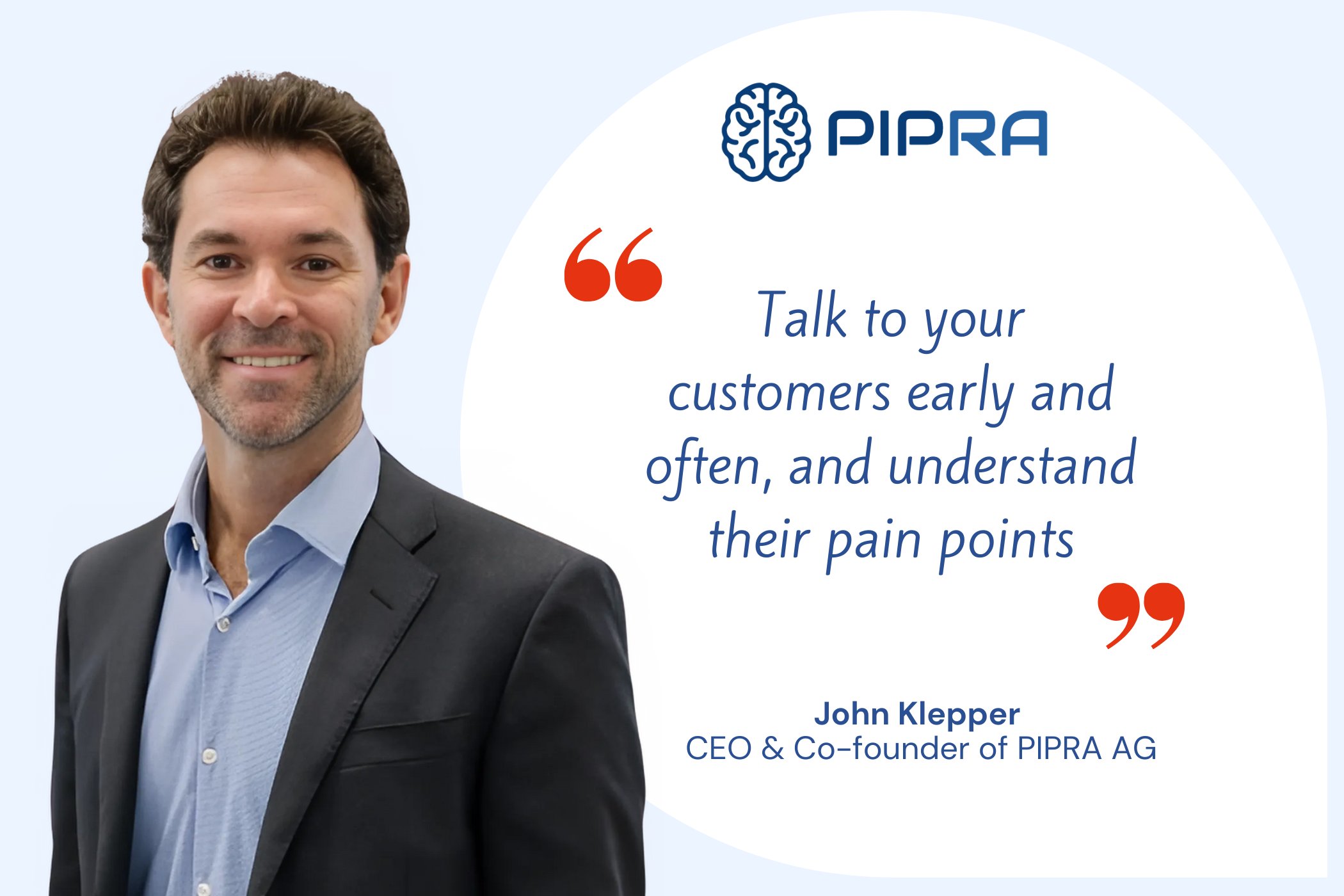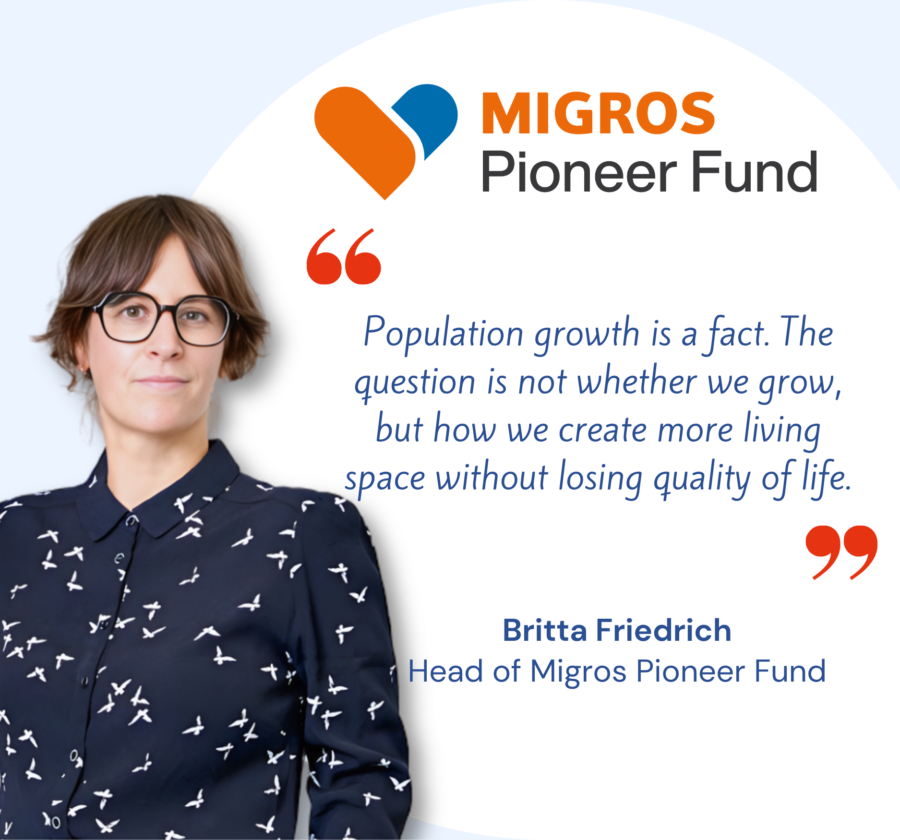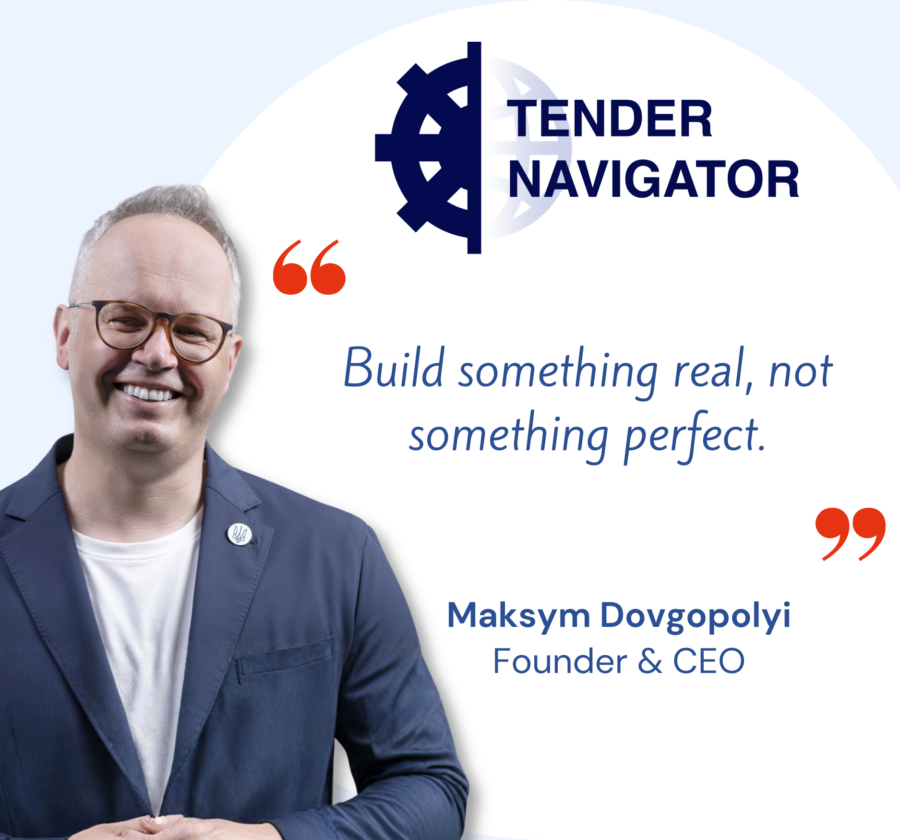
Meet John Klepper, CEO & Co-founder of PIPRA AG
Please tell us about PIPRA AG
PIPRA AG is a Zurich-based, visionary digital health startup at the forefront of developing revolutionary products that harness the power of AI and high-grade patient data for the prevention, prediction and diagnosis of delirium. In addition, we offer comprehensive services to hospitals for implementing delirium management programs. Our first product, PIPRA (Pre-Interventional Preventive Risk Assessment), is an accurate, pre-operative risk assessment tool that accurately evaluates a patient’s risk of developing postoperative delirium (POD).
PIPRA was founded in 2019 to provide a comprehensive delirium management program in hospitals, focusing on awareness, prevention, and intervention. Our team of 10, with a majority of women, combines expertise in medicine, neuroscience, AI, and business. We’re proud to champion gender diversity and innovation in healthcare.
Tell us more about your plans for 2024 and what is your long-term vision.
2024 is a crucial year as we shift from validation to full adoption in hospitals. With strong real-world evidence from Hirslanden, our focus is expanding hospital partnerships and integrating PIPRA into clinical workflows across Europe and beyond. Long-term, we aim to establish PIPRA as the gold standard for delirium care, improving patient outcomes while reducing hospital and insurance costs. We may decide to expand to other types of neurocognitive diseases once we’ve reached a large enough obtainable market. By expanding our AI capabilities, and collaborating with healthcare systems, we’re transforming how healthcare systems manage cognitive health and recovery.
What has been the biggest success that you have achieved in your startup?
PIPRA has demonstrated substantial clinical and economic benefits in a real-world hospital setting. A study conducted at a 335-bed Hirslanden hospital showcased the impact of PIPRA’s AI-driven delirium prevention strategy, particularly in medium-risk patients, who represented 21.6% of the study population.
Key Findings:
- Cost Savings: Based on a conservative estimation of length of stay (LOS) reduction, PIPRA’s implementation could lead to an annual cost reduction of approximately CHF 3.9 million. This calculation considers a 0.55-day reduction in LOS, the average daily hospital cost, and an estimated 420 eligible patients per month. While this does not account for additional factors such as increased revenue from freed-up beds or reduced nursing workload, it highlights the significant economic potential of delirium prevention.
- Reduction in Delirium Incidence: The study observed an 18% reduction in delirium incidence. This outcome underscores the effectiveness of targeted preventive strategies for at-risk patients.
- Length of Stay Reduction: Medium-risk patients experienced the greatest benefit, with a 1.36-day reduction in LOS, significantly improving hospital resource utilization and patient throughput.
- Nursing Time Savings: On average, medium-risk patients required 19.3 fewer nursing hours, easing the burden on hospital staff and enhancing overall efficiency.
Health Economic Analysis: Long-Term Financial Impact
A parallel health economic study, based on the Hirslanden data, projected even greater financial benefits include:
- CHF 25 million in potential cost savings for hospitals from 10,000 eligible patients
- CHF 30 million in savings for the broader healthcare system, accounting for factors such as nursing home admissions due to postoperative delirium.
- A 100% probability that PIPRA’s adoption would result in cost savings and a 91% probability of being cost-effective.
These projections factor in various economic elements, including hospital stay costs, reduced nursing hours, and avoided downstream healthcare expenses.
Transforming Delirium Prevention with AI
PIPRA’s AI-driven preoperative risk assessment tool equips healthcare professionals with actionable insights, enabling targeted preventive interventions for patients most at risk of postoperative delirium. By integrating this solution into clinical workflows, hospitals can significantly reduce delirium incidence, improve patient outcomes, and achieve substantial cost savings.
With compelling real-world data and robust economic modeling, PIPRA is setting a new standard in perioperative care; empowering hospitals to enhance efficiency while delivering better patient care.
If you could do it all over again, what would you do differently? What are your biggest learnings?
Looking back, one thing I might do differently is launching in a market with a stronger early-adopter mindset. Switzerland is an incredible country for innovation, research, and precision in healthcare, but the adoption of new medical technologies can be slow due to the rigorous validation processes and conservative nature of the system. While this ensures quality, it also means that getting a novel solution like PIPRA into hospitals takes longer than it might in markets with a more aggressive approach to innovation.
Another major learning has been understanding that, in healthcare, the best technology doesn’t always win. Timing, regulatory hurdles, and workflow integration are just as critical. We’ve had to adapt our approach, working closely with hospitals to ensure that PIPRA isn’t just scientifically validated but also seamlessly fits into clinical practice.
What motivates you to continue your business every day?
This mission is deeply personal to me. My mother suffered from delirium, and seeing firsthand the distress it caused, is part of what drove me to start PIPRA. Often, I think about the millions of patients and families who go through the same experience. Delirium is a preventable condition, and yet it continues to devastate lives.
Beyond that, the real-world impact we’re now seeing is hugely motivating. The study at Hirslanden demonstrated that PIPRA can reduce hospital stays, ease the burden on nurses, and ultimately save lives. Knowing that our work is making a tangible difference keeps me and the team pushing forward, despite the inevitable challenges of running a startup.
One piece of advice for someone who is just starting out with their startup?
Focus on solving a real problem, not just building a great product. A solution can be technically brilliant, but if it doesn’t fit into existing workflows or if decision-makers don’t see its immediate value, adoption will be an uphill battle. Talk to your customers early and often, understand their pain points, and be flexible in adapting your approach to meet their needs.
And, perhaps most importantly; stay resilient. Healthcare innovation takes time, and there will be setbacks. But if you’re solving a meaningful problem, the impact you can create is well worth the struggle.
Connect with John on LinkedIn
________________________________________________________
About the Swiss Startup Association
The Swiss Startup Association (SSA) is the umbrella organisation and the voice of Swiss startups. As a sector-independent non-profit organisation, the SSA gives startups a strong voice vis-à-vis politics, business and the public and works to improve the conditions for startups in Switzerland.
Beyond its political engagement, the SSA fosters a community for startups, recognizing the unique challenges they face. Through networking opportunities, educational sessions, and practical services, the SSA collaborates with industry partners to offer tailored support and valuable resources to guide founders on their entrepreneurial journey.
Join the Swiss Startup Association! Tap into our member benefits, the comprehensive Investor List and get full access to our events. By becoming an SSA Member you enjoy discounted tickets to our Big Founders Dinners and the SSA Founders Day.


